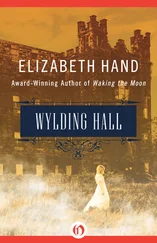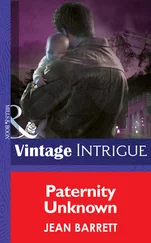Jean Baird - Elizabeth Hobart at Exeter Hall
Здесь есть возможность читать онлайн «Jean Baird - Elizabeth Hobart at Exeter Hall» — ознакомительный отрывок электронной книги совершенно бесплатно, а после прочтения отрывка купить полную версию. В некоторых случаях можно слушать аудио, скачать через торрент в формате fb2 и присутствует краткое содержание. Жанр: foreign_antique, foreign_prose, на английском языке. Описание произведения, (предисловие) а так же отзывы посетителей доступны на портале библиотеки ЛибКат.
- Название:Elizabeth Hobart at Exeter Hall
- Автор:
- Жанр:
- Год:неизвестен
- ISBN:нет данных
- Рейтинг книги:3 / 5. Голосов: 1
-
Избранное:Добавить в избранное
- Отзывы:
-
Ваша оценка:
- 60
- 1
- 2
- 3
- 4
- 5
Elizabeth Hobart at Exeter Hall: краткое содержание, описание и аннотация
Предлагаем к чтению аннотацию, описание, краткое содержание или предисловие (зависит от того, что написал сам автор книги «Elizabeth Hobart at Exeter Hall»). Если вы не нашли необходимую информацию о книге — напишите в комментариях, мы постараемся отыскать её.
Elizabeth Hobart at Exeter Hall — читать онлайн ознакомительный отрывок
Ниже представлен текст книги, разбитый по страницам. Система сохранения места последней прочитанной страницы, позволяет с удобством читать онлайн бесплатно книгу «Elizabeth Hobart at Exeter Hall», без необходимости каждый раз заново искать на чём Вы остановились. Поставьте закладку, и сможете в любой момент перейти на страницу, на которой закончили чтение.
Интервал:
Закладка:
The lady back of them had also opened her lunch. She, too, had heard the conversation between Elizabeth and the woman with the babies. Arising with her lunch in her hand, and a traveling cape over her arm, she came over to where Elizabeth stood with the baby.
“The trainmen tell me we shall have an hour to wait,” she said, addressing them. “I see a pretty little bit of grass out here, not far from the car. There is shade, too. Don’t you think it would be pleasant to sit out there and eat our lunch together? It would be rest from the close car.”
Undoubtedly she was one whose suggestions were followed, as she expected them to be now. Before she had ceased speaking she had the boy in her arms, and was on the way to the door. The mother and Elizabeth with the baby followed.
A narrow green bank lay between the railroad and the creek. A large forest oak stood there, making the one bit of shade within sight. The woman, with the boy in her arms, hurried to this. Spreading out her traveling cape, she put him down upon it, and immediately taking a sandwich from her lunch, placed it in his hands. His cries ceased. He fell to munching the sandwich, at intervals giving expression to his enjoyment.
Elizabeth trudged after with the baby. She had never carried such a burden before, and was surprised to find how heavy the frail little child was. It was all she could do to keep it from slipping from her arms, or jumping out over them. The uncertainty of what its next move would be caused her to clutch it so tightly that her muscles and nerves were at a tension, and she was glad to put it down on the cape also. The mother, with her eyes open wide at this unexpected goodness of strangers, was close at her heels.
“It’s her sleeping time,” she explained. “That’s what makes her fret so.”
“Will she eat a piece of orange?” asked Elizabeth, preparing to remove the rind.
“I don’t know but what she will.”
Elizabeth held it out. The baby knew whether she would or not. Instantly her fingers closed about it, and carried it to her mouth. It was only a few moments until the eyes closed and the child was fast asleep with the bit of orange tight in her hand.
“Your husband works at Italee?” asked the woman of the child’s mother, as she was arranging her lunch for them.
“Yes’m, he works in the brickyard there. We hain’t been there long. I was just up home buryin’ my mother.”
“What is your husband’s name?”
“Koons – Sam Koons. He’s a molder. They pay pretty well there. That’s why we moved. He used to work up at Keating; but it seemed like we’d do better down here.”
“There’s no brickyard at Keating?”
“No; but there’s mines. Sam, he’s a miner, but he’s takin’ up the brick trade.”
“Yes; I see. I do not wonder that you were glad to leave Keating. It surely is a rough place. I have never known a town so reeking with liquor. There’s every inducement there for a man’s going wrong, and none for his going right.”
“Yes’m,” said Mrs. Koons. Her deprecatory, worried expression showed that she appreciated the disadvantages of the place. “That’s what I’ve always told Sam,” she continued in her apologetic, meek voice. “When a man’s trying to do his best and keep sober, there’s them what would come right in his house and ask him to drink. A man may be meanin’ well, and tryin’ to do what’s right, but when the drink’s in his blood, and there’s them what’s coaxin’ him to it, it hain’t much wonder that he gives up. Sam, he’s one of the biggest-hearted men, and a good miner, but he’s no man for standin’ his ground. He’s easy-like to lead. We heard there wasn’t no drinkin’ places about Italee – they wasn’t allowed – so we come.”
“Yes; I’ve heard that Mr. Gleason tried to keep the place free from drink.”
“Yes’m, but folks down there say that the Senator don’t have much to do about that. It’s his wife that does all the bothering. She’s the one that tends to that. Her bein’ a woman and trustin’-like, mebbe, is what makes it easy to deceive her.”
“Oh, they do deceive her, then?”
“Yes’m. There hain’t no drinkin’ places open public-like. A stranger couldn’t go in there and buy a glass of anything; but them what’s known can get pretty much what they want.”
“Someone keeps a speak-easy?”
“Yes’m. Big Bill Kyler gets it every week, and the men get what they want.”
“Bill Kyler – um-m,” said the lady. “And where does he get it?”
“Dennis O’Day, the man what owns the brewery and the wholesale house, sells to him. Big Bill drives down in the afternoon and comes home after dark.”
“Each Saturday, you say?” asked the woman.
“Yes’m.”
During the conversation, Elizabeth had also been emptying her lunch-box. She listened eagerly to the conversation between her companions. This Dennis O’Day was the man who was doing all in his power to demoralize Bitumen. She was interested because she knew of him, and moreover, by the feeling that these questions were asked from more than passing curiosity.
“This O’Day is about at the end of his string,” continued the lady. “There are too many people watching him, eager to find him overstepping the letter of the law. I can promise you, Mrs. Koons, that he or his friend, Bill Kyler, will not be long at either Gleasonton or Italee. But come, let us dispose of the lunch while the babies are taking care of themselves.”
She had arranged the repast as daintily as her surroundings would permit. Several discarded railroad ties served as a table. Over these, she had spread napkins. Together the three sat at the improvised table until not a scrap of lunch remained.
“I didn’t know how hungry I was,” said Mrs. Koons. “We have to drive five miles to the station and that gets us up pretty early. An’ by the time I got the children up and dressed and got dressed myself, I hadn’t no time to eat much. I was just settin’ down when pap drove round and told me I should hurry up or we’d miss the train, and I couldn’t miss it, for Sam was expectin’ me to-day. He’s been gettin’ his own meals and he wanted me back home; so I didn’t scarcely finish my coffee. I was expectin’ that I’d be home in time for dinner, and I would if the train hadn’t been late.”
“You can’t get to Italee to-night, then,” said her benefactress. “There’s only one train a day from Gleasonton to Italee and it has gone by this time. They don’t wait on the accommodation.”
“Can’t I? Isn’t there?” Mrs. Koons’ countenance fell. “But I’ve got to get there! There hain’t no one I know in Gleasonton. If it wasn’t for carrying the children, I’d walk. It hain’t more than five miles, and mebbe I’d meet someone going up. The trucks come down pretty often. I’ve got to get there even if I have to walk.” Back of her years of repression, her native independence showed. She had set out to reach Italee, and she meant to. Difficulties like a walk of five miles with two children in her arms might hamper but not deter her.
“Do not worry about that. I get off at Gleasonton, and I’ll get someone to drive you over. The roads are fine now and it will not take long.”
“Yes’m. Oh, thank you! It will be kind of you, I’m sure, for walkin’ with two babies in your arms ain’t very pleasant. Do you live in Gleasonton, ma’am?”
“I’m not living there now. All summer I have been out on the Creighton farm beyond Keating.”
“Hain’t it lonely out there? I’ve driv by. It’s fixed up grand with big porches, and swings, and loads of flowers and all that, but there hain’t a house for miles about. I’d think you’d find it lonely?”
“Not at all. I take my children along, and I’m too busy while I’m there to be lonely.”
Читать дальшеИнтервал:
Закладка:
Похожие книги на «Elizabeth Hobart at Exeter Hall»
Представляем Вашему вниманию похожие книги на «Elizabeth Hobart at Exeter Hall» списком для выбора. Мы отобрали схожую по названию и смыслу литературу в надежде предоставить читателям больше вариантов отыскать новые, интересные, ещё непрочитанные произведения.
Обсуждение, отзывы о книге «Elizabeth Hobart at Exeter Hall» и просто собственные мнения читателей. Оставьте ваши комментарии, напишите, что Вы думаете о произведении, его смысле или главных героях. Укажите что конкретно понравилось, а что нет, и почему Вы так считаете.












